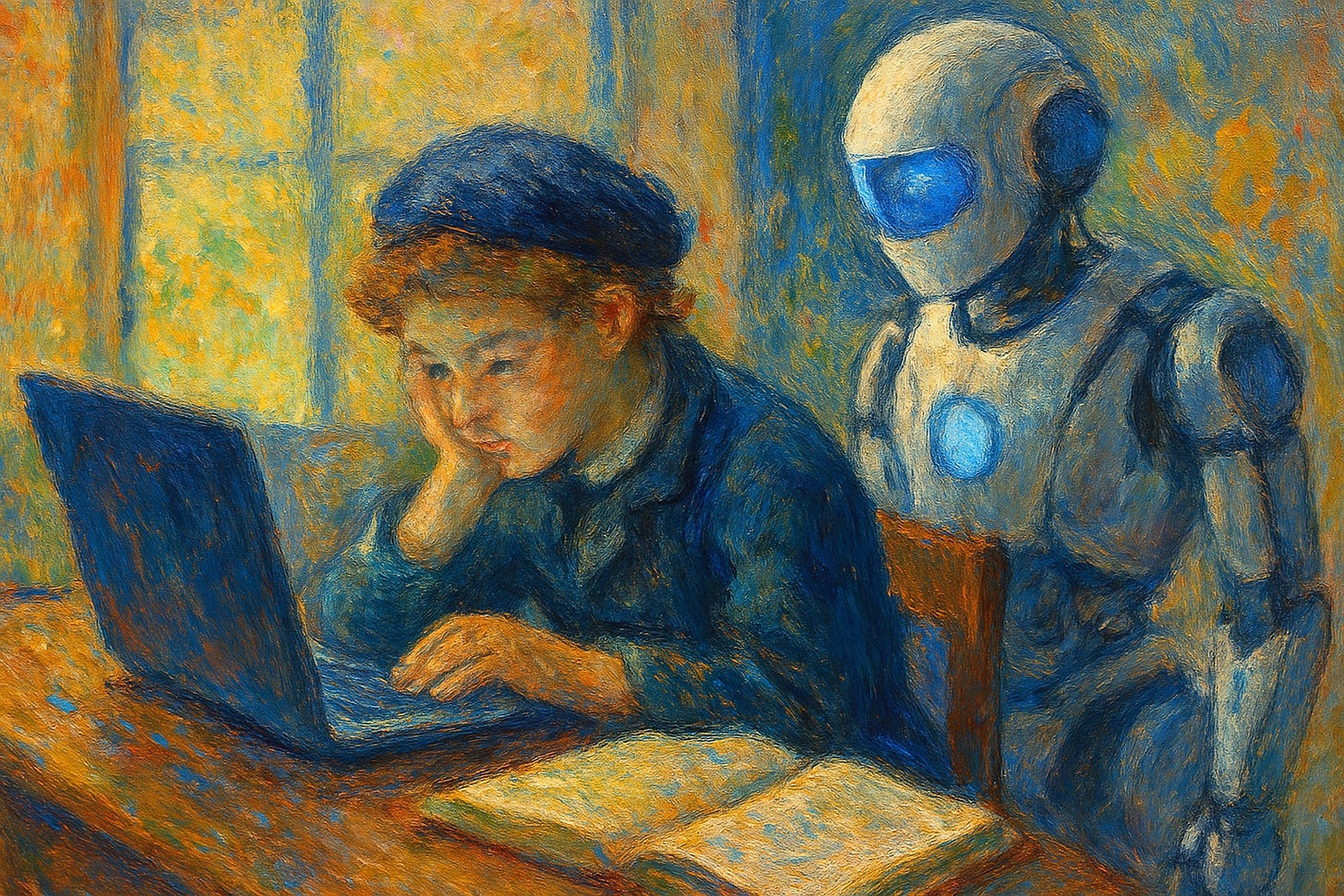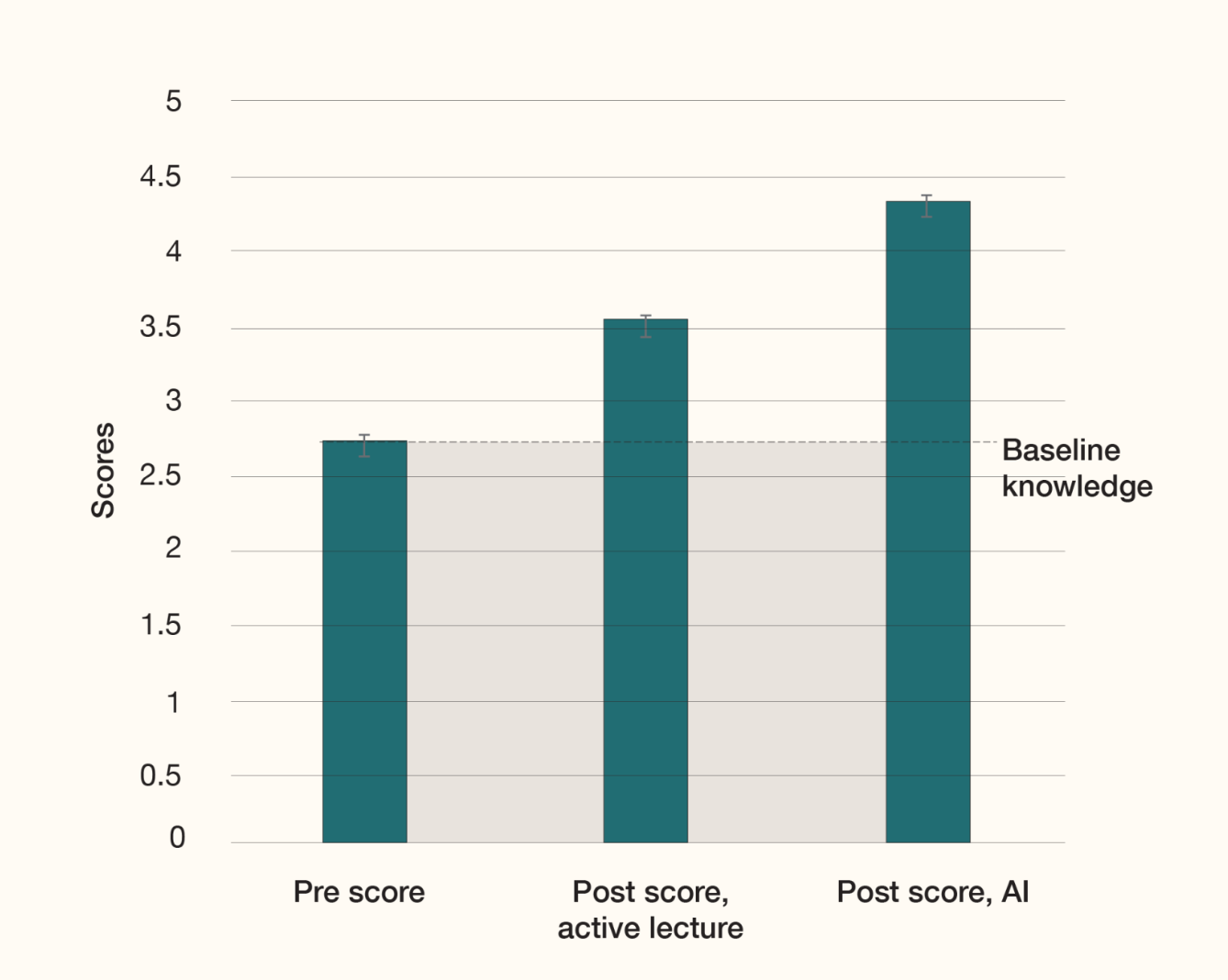All technology presents a choice. For example, the internet. Many people use it to dramatically enrich their lives: building businesses, creating new revenue streams, and forging new connections that span continents. At the same time, many others use it to diminish their potential: distracting themselves into oblivion and clicking on yet another funny dog video while the greatest minds in history lie dormant at their fingertips.
Technology is either a catalyst for creation or a slippery slope into intellectual erosion. AI works just the same. It will either destroy education or become the greatest learning tool ever invented. Kids will either use it to cheat or become a genius.
There is no in-between.
Wrongful use of AI is already infiltrating the classroom
Remember when cheating required effort? When you had to slip cash to the kid who actually did the reading, or trade your lunch for the study guide with all the correct answers? Now, it only takes a few words and a prompt box. And we already know that kids are taking full advantage of this.
26% of K-12 teachers have already caught a student cheating with ChatGPT. Roughly one in ten papers are submitted containing at least 20% AI-generated content. 56% of college students have used AI on an assignment or exam.
Believe it or not, I don’t think AI is the problem here. There’s a deeper issue — why do kids want to cheat in the first place? A few reasons:
Kids don't care about the material
Kids feel underprepared for the material.
(As well as the suffocating pressure of “getting the A,” but that’s another conversation!)
Both reasons indicate something is amiss in the classroom. But in the traditional teacher-in-front-of-the-classroom model, not much can be done. Kids cannot receive the one-on-one attention they need, nor do they learn to mastery (which unlocks their motivation to learn and grow). So, most kids stay bored or fall behind. The convenient thing to do in both scenarios is reach for ChatGPT.
It is not AI, but the wrongful use of AI, that is posing such a threat. And the heart, the core, the epicenter of this misuse is an educational model that does not accurately prepare or challenge kids for the future. Which means, ironically enough, AI itself can be the solution to its own problem.
How AI tutors are revolutionizing education
The news is out: a Harvard study confirmed that AI tutors are now twice as effective as professors.
In his “shocking” and “super exciting” study, Gregory Kestin (Associate Director of Science Education at Harvard) simply wanted to discover if AI tutors were as effective as in-person professors. He certainly didn’t expect AI tutors to outperform these professors.
*the average post-test performance between students taught with active lecture vs. AI tutors*
By no means is this a knock to all of our lovely and talented professors, nor a call to replace them with machines. It’s simply a taste of how AI can revolutionize education, the overwhelmingly positive impact it can have. Even still, Kestin is well aware of the dangers of AI-misuse in the classroom:
“While AI has the potential to supercharge learning, it could also undermine learning if we’re not careful. AI tutors shouldn’t ‘think’ for students, but rather help them build critical thinking skills. AI tutors shouldn’t replace in-person instruction, but help all students better prepare for it — and possibly in a more engaging way than ever before.”
This begs the question: what does a “more engaging” way of teaching look like?
In Kestin’s own words, teachers can now direct their energy towards helping students develop “higher-order skills, such as advanced problem-solving, project-based learning, and group work.” I love this pedagogy. In fact, the “teachers” at our schools already do this. They act as guides, mentors, and coaches — and our students learn twice as fast as their peers in traditional schools.
All of this to say, technology presents a choice. How we choose to use it matters. (Here we are — back to the example of the internet.) People will either use technology to suppress their potential or unleash it. There are doomscrollers and doers; consumers and creators; students who use AI to cheat, and students who use it to double the speed and efficacy of their learning process.
Truth is, it’s up to us. As parents, teachers, and educators, we are the ones responsible for teaching our children how to use AI the right way. Sure, we could ban AI in schools, but that’s like banning calculators or Google — a futile exercise in denying progress. AI isn’t going anywhere. The numbers show it can actually supercharge the learning process.
So, what say you? Will AI become a lazy-man’s cheating hack for your kids, a convenient shortcut they reach for when bored or behind? Or will they use it as a tool to supercharge their knowledge and unleash their potential?
That’s for you to decide.




If you're comparing AI with the teaching skill of most college professors you're setting a low bar.
Hello! Would you like to be on a podcast about Learning Outside of Traditional School???